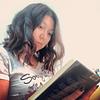Take a photo of a barcode or cover
A book in which every sentence can be a powerful, life changing quote.
I will be definitely returning and re-reading this one in the future, consulting it whenever I have a brain itch I can not scratch with any other piece of literature
I will be definitely returning and re-reading this one in the future, consulting it whenever I have a brain itch I can not scratch with any other piece of literature
Vis negaliu apsispręsti, ar ši knyga tikrai verta penkių žvaigždučių įvertinimo, tad kol kas palieku keturias. Viena vertus, knyga originali ir autentiška, joje nagrinėjamos kasdienės, bet retai į paviršių iškeliamos problemos. Psichologizuotas Nyčės tipas, įsibrovimas į giliausius žinomo filosofo sielos kampelius. Kita vertus, knygai trūksta gilumo, o jei joje ir yra kokių susimąstyti skatinančių minčių, tai visos jos paimtos iš žymių Nyčės veikalų.
Knyga perskaičiau greitai ir lengvai, ji man tikrai labai patiko, nepaisant visų mažų bėdų.
Knyga perskaičiau greitai ir lengvai, ji man tikrai labai patiko, nepaisant visų mažų bėdų.
emotional
hopeful
informative
mysterious
reflective
medium-paced
Strong character development:
Yes
Loveable characters:
Complicated
Diverse cast of characters:
No
Flaws of characters a main focus:
Yes
challenging
emotional
inspiring
medium-paced
Strong character development:
Yes
Loveable characters:
Complicated
Diverse cast of characters:
No
Flaws of characters a main focus:
Yes
informative
reflective
medium-paced
Strong character development:
Yes
Loveable characters:
Yes
This book was recommended to my by someone who had a career as a psychotherapist, and it's a fictional account of an encounter between Friedriche Nietzche, the philospher, and Josef Breuer, a physician is credited as one of the founders of psychology. Nietchze and Breuer lived and worked at the same time and although there is no evidence that they ever met, it may have happened. In this book they not only meet but have an intense meeting of the minds. Nietchze comes to Breuer for treatment of his intensely debilitating migraine headaches . Unknown to Nietche, Breuer had previously been approached by a woman with whom Nietchze had a disastrous love affair, who begged Breuer to take the case fearing Niecheze is going to commit suicide. Breuer agrees. Because Breuer knows about the love affair and the stress it has caused, he attempts to draw Nieetche out over the course of his medical examinations. Extremely reticent by nature, and too smart for this by half, Nietchze parries every effort Breuer makes to get him to reveal anything personal. Breuer himself is in the midst of a midlife crises and eventually he and Nietche reach an agreement in which Breuer treats Neitchze's physical symptons, and submits himself to Neitchze to treat his angst by applying his readical philosphies. The story is quite a page turner. The author, a psychologist himself, drew on a lot of factual information, including letters and diaries, to create this original book.
WHAT IS IT ABOUT?
Located in 1882 Vienna/Austria, this book tells a non-real story about how
psychoogy/psychotherapy could have developed. Combining the deepness of
the thoughts of Breuer, Freud and Nietzsche it leads the way into
psychotherapy and the "medicine for despair". The best part about it, in my
opinion, is that they discover psychotherapy because they themselves need it.
Its not about some medicine student sitting in a laboratory and finding a new
method - it is a doctor Breuer), himself suffering from despair, who tries to
find a way out of this hole by turning to a philosopher Nietzsche).
WHY DID I LIKE IT?
I am a psychology student in vienna and am interested in psychology and
especially psychotherapy myself (studying psychology). I like the author and his way of telling stories, it really gripped me and gave me many new insights + much food for thought.
Its cool reading about those people and their private lives when, in
university, we are constantly talking about them - but only in a completely
professional way. It felt like looking "behind the scenes" of the development of
psychotherapy - even tho this is not a true story, it is very close to reality
and could easily have happened this way
There were parts which made me feel uncomfortable nonetheless, looking
so deep into the mind of a man I sometimes wished Breuer could just keep
his thoughts for himself. But in the end he is a very interesting character
who, in the turn of this book, experiences great character development
and is able to look at himself and be honest about his mistakes.
KEY POINTS
"oh, the endless labor of the intellectual - pouring all this knowledge
into the brain through a three-millimeter aperture in the iris" - page
37
"I now believe that fears are not born of darkness; rather, fears are
like the stars - always there, but obscured by the glare of daylight." -
page 172
"it is easier, far easier, to obey another than to command oneself" -
page 177
"I stated that there was a basic division of the ways of men: those
who wish for peace of soul and happiness must believe and embrace
faith, while those who wish to pursue the truth must forsake peace of
mind and devote their life to inquiry."
- seite 178 - "if you kill god, you must also leave the shelter of the
temple"
"A cosmic perspective always attentuates tragedy. If we climb high
enough, we will reach a height from which tragedy ceases to look
tragic." - page 209
"Where I am, death is not; where death is, I am not." - page 209
two moving stories about passion - page 222
"We must look to meaning. The symptom is but a messenger carrying
the news that Angst is erupting from the innermost realm." - Seite
232
"I dream of a love in which two people share a passion to search
together for some higher truth. Perhaps I should not call it love.
Perhaps it's real name is friendship." - page 243
about the infinite - page 250
" "So, Josef, once again I say, let this thought take possession of you.
Now I have a question for you: Do you hate the idea? Or do you love it?"
- "I hate it!" Breuer almost shouted. "To live forever with the
sense that I have not lived, have not tasted freedom - the idea fills me
with horror." "Then," Nietzsche exhorted, "live in such a way that you
love the idea!" - "All that I love now, Friedrich, is the thought that I
have fulfilled my duty towards others." " - page 252
"Today I understoof that the best teacher is one who learns from his
student." - page 254
Amor fati, thus it was - thus I willed it. - page 282
"She may have played her role, but you, what role did you play? Were
you, and I, so different from her? Did you see her? Or did you,
instead, see only prey - a disciple, a plowland for your thoughts, a
successor?" - page 298
Located in 1882 Vienna/Austria, this book tells a non-real story about how
psychoogy/psychotherapy could have developed. Combining the deepness of
the thoughts of Breuer, Freud and Nietzsche it leads the way into
psychotherapy and the "medicine for despair". The best part about it, in my
opinion, is that they discover psychotherapy because they themselves need it.
Its not about some medicine student sitting in a laboratory and finding a new
method - it is a doctor Breuer), himself suffering from despair, who tries to
find a way out of this hole by turning to a philosopher Nietzsche).
WHY DID I LIKE IT?
I am a psychology student in vienna and am interested in psychology and
especially psychotherapy myself (studying psychology). I like the author and his way of telling stories, it really gripped me and gave me many new insights + much food for thought.
Its cool reading about those people and their private lives when, in
university, we are constantly talking about them - but only in a completely
professional way. It felt like looking "behind the scenes" of the development of
psychotherapy - even tho this is not a true story, it is very close to reality
and could easily have happened this way
There were parts which made me feel uncomfortable nonetheless, looking
so deep into the mind of a man I sometimes wished Breuer could just keep
his thoughts for himself. But in the end he is a very interesting character
who, in the turn of this book, experiences great character development
and is able to look at himself and be honest about his mistakes.
KEY POINTS
"oh, the endless labor of the intellectual - pouring all this knowledge
into the brain through a three-millimeter aperture in the iris" - page
37
"I now believe that fears are not born of darkness; rather, fears are
like the stars - always there, but obscured by the glare of daylight." -
page 172
"it is easier, far easier, to obey another than to command oneself" -
page 177
"I stated that there was a basic division of the ways of men: those
who wish for peace of soul and happiness must believe and embrace
faith, while those who wish to pursue the truth must forsake peace of
mind and devote their life to inquiry."
- seite 178 - "if you kill god, you must also leave the shelter of the
temple"
"A cosmic perspective always attentuates tragedy. If we climb high
enough, we will reach a height from which tragedy ceases to look
tragic." - page 209
"Where I am, death is not; where death is, I am not." - page 209
two moving stories about passion - page 222
"We must look to meaning. The symptom is but a messenger carrying
the news that Angst is erupting from the innermost realm." - Seite
232
"I dream of a love in which two people share a passion to search
together for some higher truth. Perhaps I should not call it love.
Perhaps it's real name is friendship." - page 243
about the infinite - page 250
" "So, Josef, once again I say, let this thought take possession of you.
Now I have a question for you: Do you hate the idea? Or do you love it?"
- "I hate it!" Breuer almost shouted. "To live forever with the
sense that I have not lived, have not tasted freedom - the idea fills me
with horror." "Then," Nietzsche exhorted, "live in such a way that you
love the idea!" - "All that I love now, Friedrich, is the thought that I
have fulfilled my duty towards others." " - page 252
"Today I understoof that the best teacher is one who learns from his
student." - page 254
Amor fati, thus it was - thus I willed it. - page 282
"She may have played her role, but you, what role did you play? Were
you, and I, so different from her? Did you see her? Or did you,
instead, see only prey - a disciple, a plowland for your thoughts, a
successor?" - page 298




